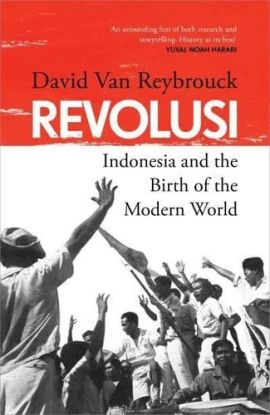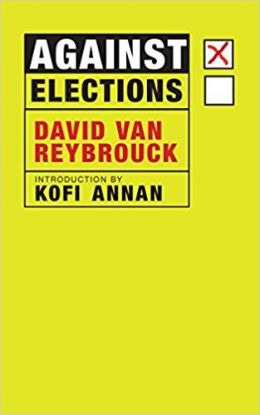David Reybrouck
autor
Revolusi
On a sunny Friday morning in August 1945, a handful of tired people raised a homemade cotton flag and on behalf of 68 million compatriots announced the birth of a new nation. With the fourth largest population in the world, inhabiting islands that span an eighth of the globe, Indonesia became the first colonised country to declare its independence after the Second World War.
Four million civilians had died during the wartime occupation by the Japanese that ousted the Dutch colonial regime. Another 200,000 people would lose their lives in the astonishingly brutal conflict that ensued - as the Dutch used savage violence to reassert their control, and as Britain and America became embroiled in pacifying Indonesia's guerrilla war of resistance: the 'Revolusi'. It was not until December 1949 that the newly created United Nations convinced the Netherlands to cede all sovereignty to Indonesia, finally ending 350 years of colonial rule and setting a precedent that would reshape the world.
Drawing on hundreds of interviews and eye-witness testimonies, David Van Reybrouck turns this vast and complex story into an utterly gripping narrative that is alive with human detail at every turn. A landmark publication, Revolusi shows Indonesia's struggle for independence to be one of the defining dramas of the twentieth century and establishes its author as one of the most gifted narrative historians at work in any language today.
Against Elections
A small book with great weight and urgency to it, this is both a history of democracy and a clarion call for change.
"Without drastic adjustment, this system cannot last much longer," writes Van Reybrouck, regarded today as one of Europe's most astute thinkers. "If you look at the decline in voter turnout and party membership, and at the way politicians are held in contempt, if you look at how difficult it is to form governments, how little they can do and how harshly they are punished for it, if you look at how quickly populism, technocracy and anti-parliamentarianism are rising, if you look at how more and more citizens are longing for participation and how quickly that desire can tip over into frustration, then you realize we are up to our necks."
Not so very long ago, the great battles of democracy were fought for the right to vote. Now, Van Reybrouck writes, "it's all about the right to speak, but in essence it's the same battle, the battle for political emancipation and for democratic participation. We must decolonize democracy. We must democratize democracy."
As history, Van Reybrouck makes the compelling argument that modern democracy was designed as much to preserve the rights of the powerful and keep the masses in line, as to give the populace a voice. As change-agent, Against Elections makes the argument that there are forms of government, what he terms sortitive or deliberative democracy, that are beginning to be practiced around the world, and can be the remedy we seek. In Iceland, for example, deliberative democracy was used to write the new constitution. A group of people were chosen by lot, educated in the subject at hand, and then were able to decide what was best, arguably, far better than politicians would have.
A fascinating, and workable idea has led to a timely book to remind us that our system of government is a flexible instrument, one that the people have the power to change.
Vypredané
18,95 €
19,95 €




